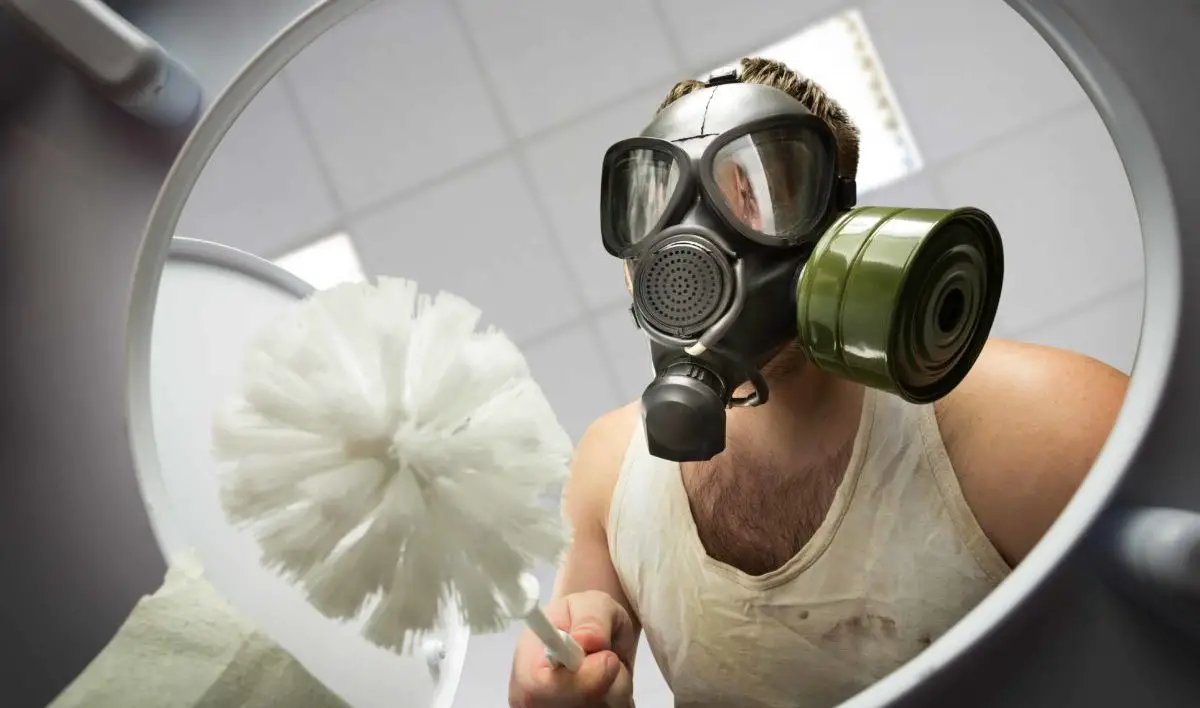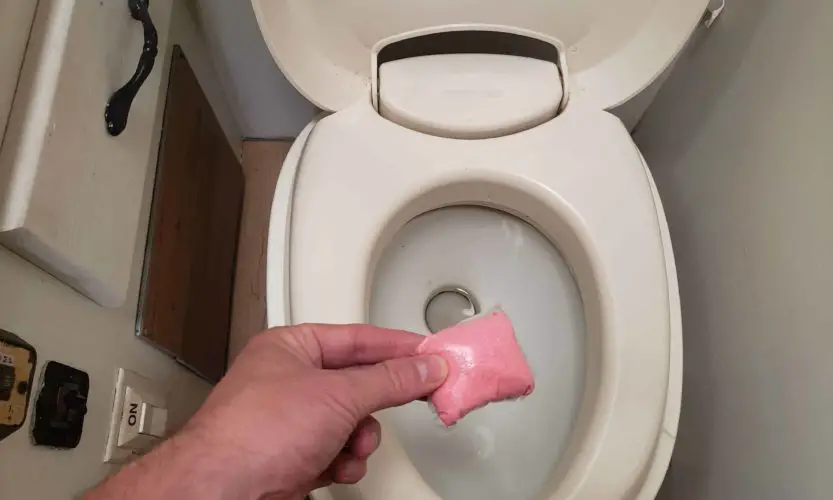
RV Toilet Smells When Flushed & How to Fix It
In the close quarters of an RV or travel trailer, toilet smells are inevitable. After all, the small space lends itself to the sharing of just about everything. That said, if the RV toilet gives off its own stench when you flush, there are likely underlying issues you need to address. A musty or toilet-y smell, when you’ve just scrubbed the bowl, is frustrating and gross.
So why does your RV toilet smell, and how can you get rid of the smell. Here we’ll go over the potential reasons for the problem, how to eliminate it, and ways to keep potty smells from coming back.
Why Does My RV Toilet Smell?
If the smell you experience is ongoing, and not solely when people are using it. There are a few potential causes. Here are the most common reasons RV toilets retain an odor.
Tank Damage
When you think about the place the toilet’s contents go, it’s not a pretty picture. But the cause of your RV’s stinky problem could be due to tank damage. If you (or the previous owner) don’t take proper care of the rig’s black tank, it can develop issues.
Leaving dry waste in the tank can cause buildup, which is not only gross but also affects your ability to empty it thoroughly. Even damage like cracks or holes can cause leakage and buildup in unwanted places. In most cases, severe tank damage requires professional help.
Toilet Leak
A leaky toilet is a common issue in both recreational vehicles and residential homes. And when the commode in your camper leaks, everything in it can escape, too. Gases, liquids, and even solid material seep out and permeate the bathroom and other areas of your RV. Checking for leaks is an essential step in getting rid of sewer odor.
Lack of Deep-Clean
Spraying down and wiping the toilet bowl and seat isn’t always enough. To keep bacteria and bad odor at bay, perform a deep clean of your toilet frequently. Be sure to scrub in all the areas waste can dry out and start smelling—and wear gloves.
You Have a Clog
Clogs keep water (and waste) from flowing through your RV’s pipes. And when the toilet stuff gets stuck in the pipes, the smell can linger. Sometimes, you can have a clog even if the toilet appears to flush normally. Water (and sewer contents) only back up when the clog blocks the pipe entirely—but don’t wait for that to happen.

How Can I Get Rid of That RV Sewer Smell When I Flush?
Now that you know some reasons why the smell happens, how can you get rid of it? There are three crucial steps to getting rid of black water tank odor and making RVing enjoyable again.
Step 1: Get Rid of Any Clogs
Clogs are common in all types of toilets, making clog removal the first step in cleaning out your 5th wheel or motorhome’s septic system. A clog can happen anywhere from the pipes beneath the toilet to the sewer valve at the exterior of your rig. Hookups can sustain damage, what with all the connecting and disconnecting, and clogs can happen in your sewer hoses, too.
To get rid of clogs, you can start by using a plunger to loosen anything that’s stuck. A toilet auger—or plumbing snake—is another option if the plunger doesn’t achieve results. Further solutions for clog removal include pouring boiling water down the toilet (leave the plunger aside for this step) or using store-bought pipe flushing products.
If you choose a store-bought product—which you can find at Walmart and many hardware stores—make sure it’s for RV septic systems specifically.
Step 2: Flush & Clean Your Black Tank
Your black tank is where all the toilet business goes in an RV. But your gray water tank—which receives all RV water except the toilet contents—can have bad smells too. Either RV holding tank can develop odors—though gray water tanks hint at smells via the kitchen or bathroom sink rather than the toilet.
It’s important to note that you should never add anything to your RV’s fresh water tank. The fresh water supply is a food source, and you can’t safely clean it with bleach or chemicals.
Sanitizing your black tank can be a nasty job, but a simple way to get things moving is to pour ice and soap into the tank before a trip. Many RVers swear by Dawn dish soap for this purpose. The jostling of the ice and soap as you drive can help scrub the tank out. Once you reach your destination, empty the tank out to avoid soap residue drying up inside.
Another option for cleaning the black tank is power washing or hosing it down. However, any water hose you insert into the tank is no longer suitable for cleaner uses afterward.
Step 3: Clean the Flapper and Toilet
The flapper is a seal on your toilet which allows waste to exit when you flush. It resides in the toilet tank—a chain typically lifts it when you press the flush lever—and can get grimy.
Although the flapper doesn’t directly contact wastewater, it still stays submerged most of the time. Depending on the type of water you have, there could be mineral buildup or even algae affecting the flapper’s suction.
Inefficient suction can allow water to leak slowly, causing the toilet to run. This can allow odors to escape. Fortunately, cleaning the flapper often helps eliminate the leakage issue. You can also replace the flapper as necessary—a straightforward task.
Cleaning the toilet is another essential step toward eliminating odors. Plenty of products exist to kill the germs and bacteria that live on your toilet surfaces. Make sure to follow product directions and scrub thoroughly to remove dried-on waste and liquids.

Toilet Smell Prevention and Maintenance
Once you address the immediate issue with toilet odors, it’s essential to take preventative measures, too. You can avoid future tank smell problems with a few simple measures.
Use the Right Toilet Paper
While there are many similarities between residential and RV septic systems, there are differences, too. The most crucial difference is how waste breaks down in the tank. RVs require specific toilet paper which biodegrades in the septic tank. Using standard toilet paper will eventually cause clogs and even damage to your septic system.
Choose Holding Tank Treatment Carefully
Holding tank treatments are an essential preventative measure for RV owners. Deodorizers help cover up and remove odors while additional ingredients help break down waste and toilet paper. RV toilet chemical options range from drop-in packs to liquid and powder formulas you measure before adding.
Check Vents (& Keep Them Clear)
Recreational vehicles use a venting system to keep bathroom odors at bay. But the vent pipe can become clogged or blocked. You may find wasps or other bugs making nests on the roof vent, which can affect how well air circulates.
Check for blockage on each tank vent and remove any animal nests, dirt, or cobwebs you find. Remember to check back periodically to prevent blockages before they become serious. Making regular maintenance part of your routine can help avoid future—and smelly—problems.
